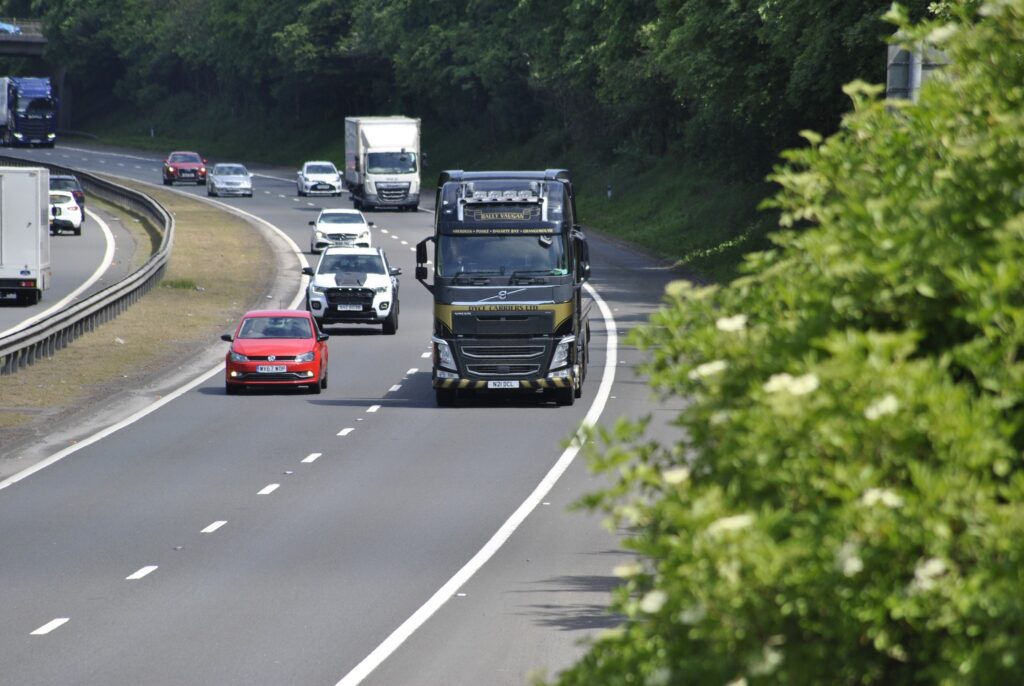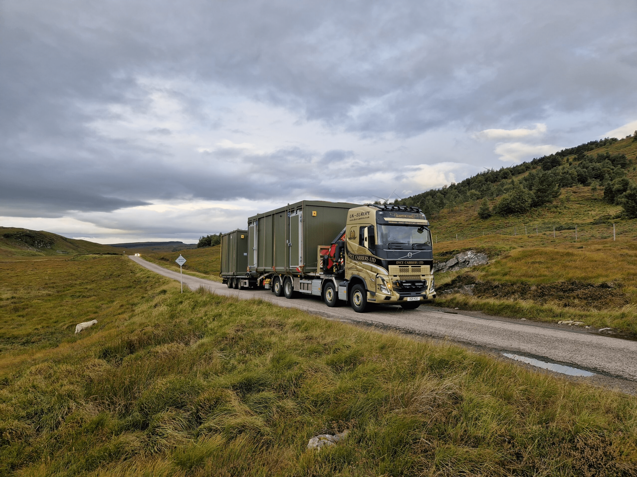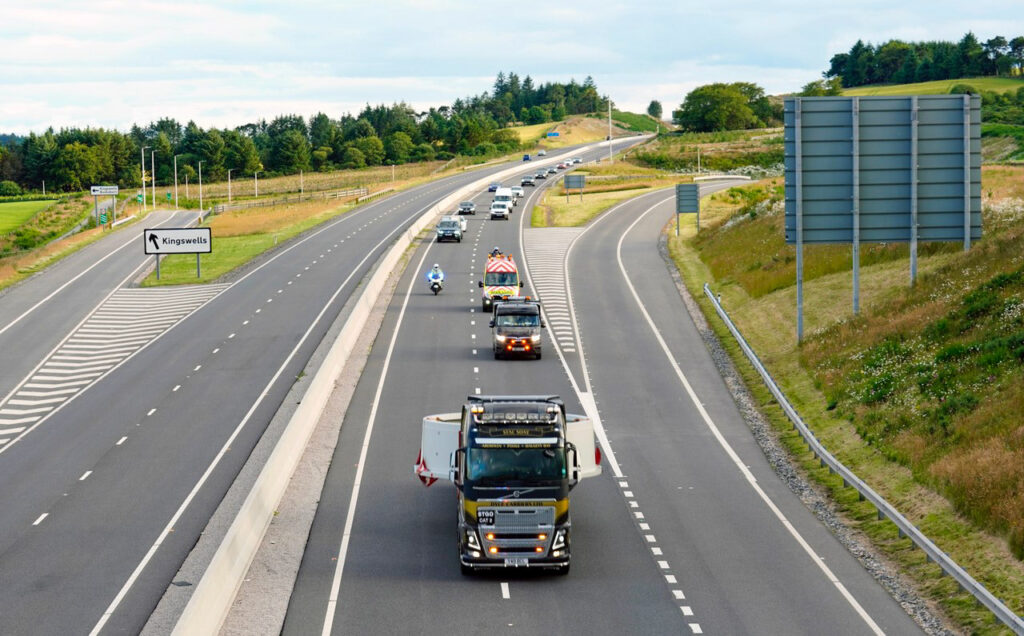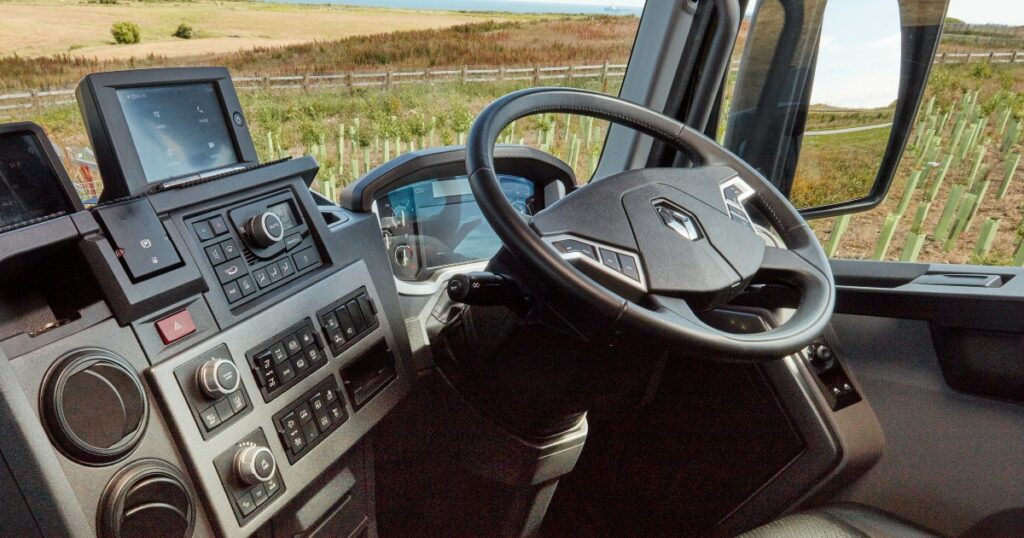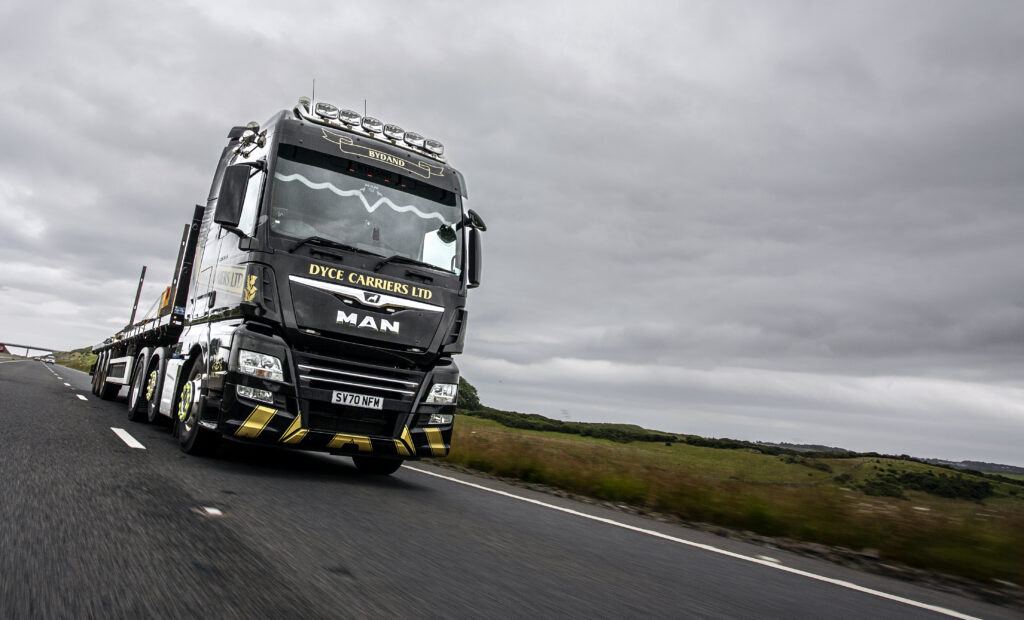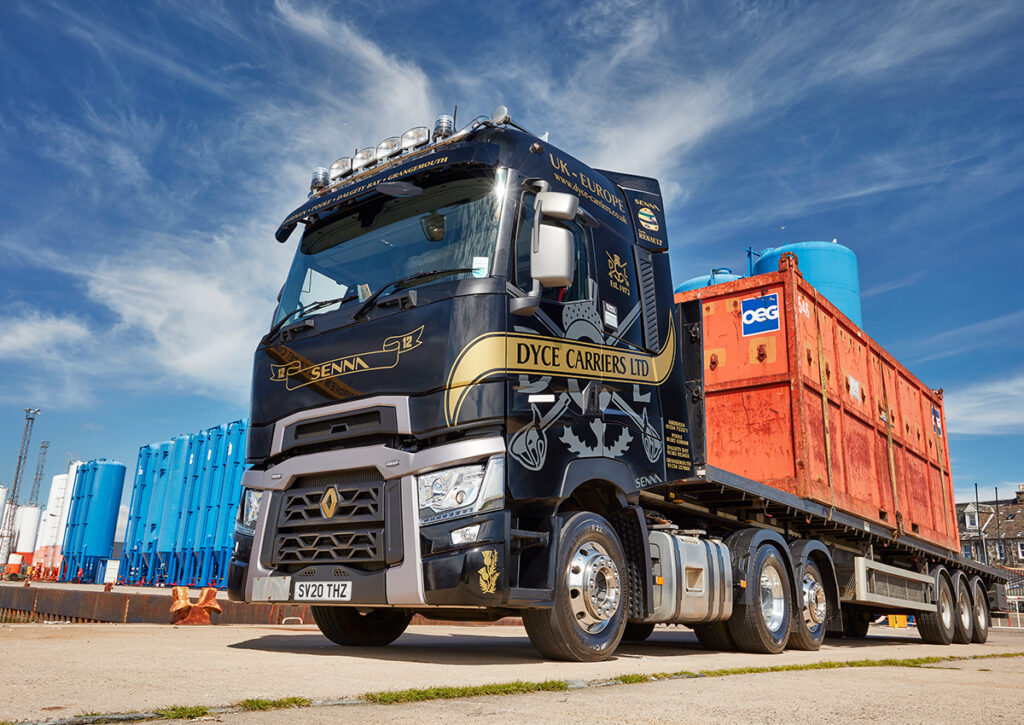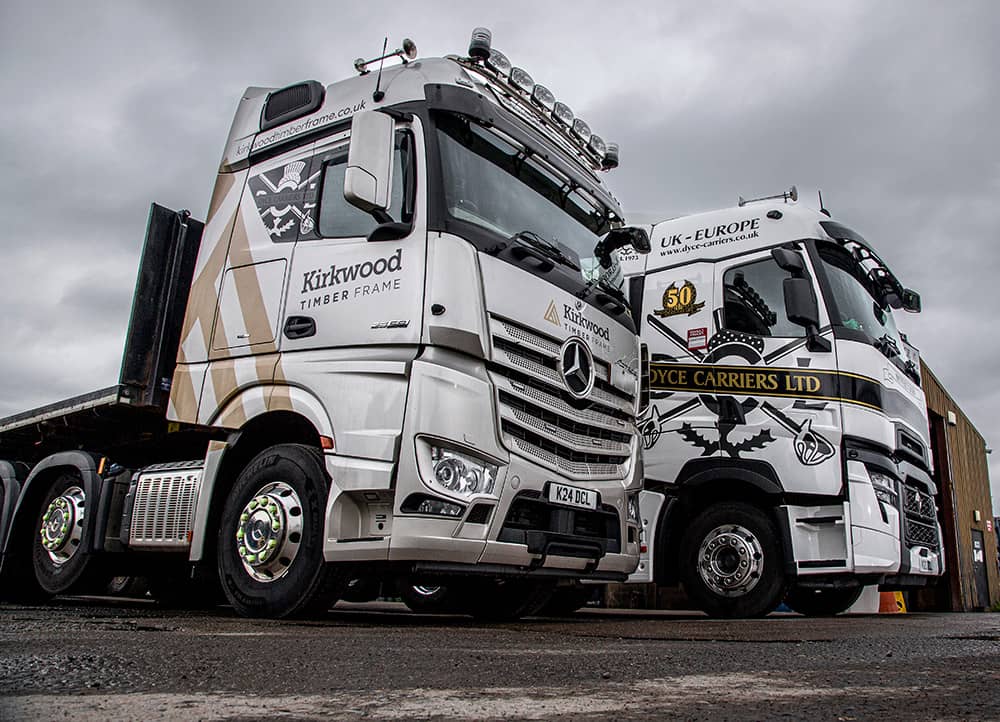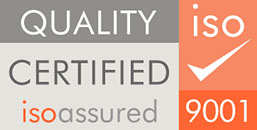Haulage firms are standing at a pivotal crossroads. On one hand, transportation and logistics play an indispensable role in driving the global economy, ensuring cargo is efficiently transported across vast distances through road freight. On the other, they grapple with significant environmental challenges that have far-reaching consequences for our planet.
Road haulage and transportation have a significant impact on the environment, from noise pollution to the emission of harmful pollutants and the reliance on imported fossil fuels, all of which contribute to climate change. Today, the transport sector accounts for approximately 25% of global CO2 emissions.
Despite this, haulage firms have the potential to be at the forefront of positive change. By adopting sustainable practices, investing in fuel-efficient vehicles, and championing innovative solutions, hauliers can significantly reduce their carbon footprint. As a collective, haulage firms have the power to influence broader change in the freight forwarding industry, setting the standard for environmental responsibility and encouraging other sectors to follow suit.
As we delve deeper into this topic, we’ll explore the many ways in which haulage firms can make a tangible difference, not just for the environment, but for the future of the industry and our planet.
The environmental footprint of trucking
The road haulage industry, while essential for the global economy, has a significant environmental impact. The transport sector, including road haulage, plays a major role in greenhouse gas emissions, contributing to climate change and affecting air quality. Here’s a closer look at the environmental footprint of freight forwarding and logistics, specifically in trucking.
Carbon emissions from transportation
The combustion of traditional fuels, primarily diesel, in trucks releases significant amounts of carbon dioxide (CO2) into the atmosphere. In 2018 the transport sector was responsible for 21% of total global CO2 emissions, while road transport alone accounted for 15% of the world’s total CO2 emissions. Of the total global transport emissions, 29% came from trucking, which was not as high as passenger travel, but is still a significant amount.
The impact on air quality
In addition to CO2, trucks also emit nitrogen oxides (NOx) and particulate matter (PM), both of which degrade air quality. These pollutants can lead to respiratory problems in humans and harm the environment. Poor air quality, exacerbated by emissions from road transport, can lead to health issues such as asthma, bronchitis, and other respiratory problems.
Urban background and roadside nitrogen dioxide (NO2) pollution has shown long-term improvement, decreasing by 1% at urban background sites and 5% at roadside sites in 2022. The annual mean concentrations of PM10 actually increased from 2021, by roughly 7%, though concentrations remain lower than pre-2020 levels. This reduction is a testament to the efforts being made to curb pollution, but the battle is far from over.
Noise pollution and its effects
Trucks, especially when in large numbers on busy roads, contribute to noise pollution. This form of pollution can disrupt the peace in both urban and rural areas, affecting the well-being of residents and wildlife. Prolonged exposure to high levels of noise can lead to stress, sleep disturbances, and even cardiovascular problems in humans.
The logistics and freight industry, with its vast network and influence, has the potential to lead the way in reducing these environmental impacts. Supply chain consulting services can play a crucial role in this endeavor. By understanding the challenges and acting proactively, haulage firms can pave the way for a more sustainable future.
Pioneering sustainable practices in haulage
As environmental concerns become increasingly pressing, haulage firms are recognising the need to adapt and innovate. By pioneering sustainable practices, haulage firms can not only reduce their environmental footprint but also enhance operational efficiency and customer satisfaction. Here’s a closer look at some of the sustainable practices that are making waves in the haulage sector.
Regular vehicle maintenance
Well-maintained trucks run more efficiently, consume less fuel, and emit fewer pollutants. Simple measures, such as ensuring optimal tyre pressure, replacing air filters, and using high-quality engine oil, can significantly improve a vehicle’s fuel efficiency.
Regular checks can also identify potential issues before they escalate, reducing the risk of breakdowns and ensuring that trucks remain on the road, operating at peak efficiency. By prioritising regular maintenance, haulage companies can reduce their carbon footprint, save on fuel costs, and extend the lifespan of their lorries.
Recognising the importance of this approach, our team has invested in a state-of-the-art garage facility in Aberdeen, equipped with the latest diagnostic and repair tools to ensure every vehicle in our fleet receives top-tier care.
Route optimisation to reduce fuel consumption
Advanced GPS and mapping software enables logistics and freight haulage firms to identify the most efficient routes for their deliveries, enhancing their service focus. This not only reduces the distance travelled but also avoids traffic congestion and potential delays. The benefits are twofold: reduced fuel consumption and faster delivery times. By minimising unnecessary detours and stops, trucks can operate more efficiently, leading to significant fuel savings and a corresponding reduction in CO2 emissions. Optimised routes also mean fewer hours on the road, reducing driver fatigue and enhancing safety.
At Dyce Carriers, we’ve bolstered our route optimisation using an innovative haulage app called eDriver. This smart tool directs our drivers to the quickest and most fuel-efficient routes, reducing unnecessary mileage and emissions. It’s a testament to our commitment to blending technology with sustainability, ensuring timely deliveries while cutting down on our carbon footprint.
Groupage: Eco-friendly, cost-effective shipping
Groupage, or the consolidation of multiple smaller shipments into a single larger one, is a great way to service multiple clients in the freight industry who require less than a full truckload for their cargo. Instead of sending multiple trucks with partial loads, haulage firms can combine these loads, ensuring that trucks are operating at full capacity. This not only maximises the use of available space but also reduces the number of trips required, leading to lower fuel consumption and emissions.
For customers, groupage freight offers a cost-effective solution, as they share the total cost of transportation. By offering groupage services, haulage firms can offer a more sustainable and economical transportation solution, catering to the needs of both the environment and their clients.
At Dyce Carriers, we’ve long recognised the benefits of groupage services. For years, we’ve been consolidating multiple smaller shipments, ensuring our trucks operate at full capacity.
The evolution of fuel efficiency and alternative energy
The road haulage industry is undergoing a transformative shift, with fuel efficiency and alternative energy sources taking centre stage. As the world wrestles with the pressing need to combat climate change, haulage firms are exploring innovative solutions to reduce their carbon footprint. Here’s a closer look at the evolution of fuel efficiency and the rise of alternative energy in the sector:
The emergence of electric and hybrid vehicles
Electric and hybrid trucks are no longer a distant dream; they’re a reality reshaping the haulage landscape. With zero emissions at the tailpipe, electric trucks offer a clean alternative to traditional diesel-powered vehicles. Hybrid trucks, combining conventional engines with electric propulsion, provide a balanced approach, ensuring longer range while still reducing emissions. As battery technology advances and charging infrastructure expands, the adoption of electric and hybrid vehicles in the haulage sector is set to accelerate. To stay ahead of the curve haulage firms should begin preparing for the future of freight haulage.
For many companies investing in electric vehicles poses a significant challenge, as these trucks are roughly four times the cost of diesel vehicles and incentives currently offered by the government don’t offset the massive investment required by companies to transition to a greener fleet. Until more government support is offered to supercharge the sector’s sustainability, progress will remain slow on this front.
What’s more, significant investments in EV charging for the trucking industry and improvements to infrastructure will need to be made before trucking companies feel confident about making the switch. In essence, the speed at which haulage companies can revolutionise their sustainability practices will rely heavily on collaboration and support coming from the UK government.
The potential of biofuels in revolutionising haulage
Biofuels, derived from organic materials, present a promising solution for the haulage industry. Unlike fossil fuels, biofuels are renewable and can significantly reduce CO2 emissions when burned. From biodiesel to ethanol, these alternative fuels can be used in existing engines with minimal modifications. As research continues and production methods become more efficient, biofuels could play a pivotal role in helping haulage firms become more sustainable.
Technological advancements aiding fuel efficiency
Technology is also being used to enhance fuel efficiency. Advanced aerodynamics, tyre optimisation, and engine management systems are just a few ways that road haulage companies have made freight transportation more fuel-efficient. Telematics and real-time data analytics allow hauliers to monitor fuel consumption, identify inefficiencies, and make more informed decisions. As technology continues to evolve, it will undoubtedly play a crucial role in shaping a more fuel-efficient and environmentally friendly freight industry.
The legal landscape for haulage firms
The haulage industry, like all sectors, operates within a framework of regulations and standards. These rules, especially those related to the environment, have a profound impact on how haulage firms conduct their operations. As the global emphasis on sustainability grows, it’s crucial for haulage companies to stay abreast of the regulatory landscape to ensure compliance and seize opportunities for innovation.
Environmental regulations governing UK haulage firms
The UK has been at the forefront of implementing stringent environmental regulations, especially in the transport sector. The Euro 6 standards, for instance, set limits for exhaust emissions of new vehicles sold in the European Union and EEA member states. These standards have pushed haulage firms to invest in cleaner engines and adopt practices that reduce harmful emissions.
Additionally, the UK’s Clean Air Zones (CAZ) target areas with poor air quality, imposing charges on vehicles that don’t meet the required emission standards. Such regulations compel haulage firms to rethink their fleet strategies and invest in cleaner vehicles.
Anticipated legislative changes and their potential effects
While existing regulations have already shaped the industry’s trajectory, future legislative changes promise to further redefine the haulage landscape. The UK government’s commitment to achieving net-zero carbon emissions by 2050 will undoubtedly lead to stricter regulations for the transport sector.
There’s speculation about potential mandates for haulage firms to incorporate a certain percentage of electric or hybrid trucks into their fleets. Additionally, with the global push towards sustainability, there might be stricter controls on emissions, pushing for the adoption of alternative fuels and advanced engine technologies.
Haulage firms that proactively adapt to these anticipated changes will not only ensure compliance but also position themselves as industry leaders.
The role of government incentives in driving sustainability in haulage
Recognising the challenges that come with transitioning to greener practices, the UK government has rolled out various incentives to support haulage firms. These range from tax breaks for investing in eco-friendly lorries to grants for research into sustainable transport solutions.
The Plug-in grant, for instance, reduces the cost of purchasing electric trucks, making it financially viable for haulage firms to make the switch. Such incentives play a pivotal role in accelerating the industry’s shift towards sustainability. They not only ease the financial burden but also signal the government’s commitment to backing haulage firms in their journey towards a greener future.
Regulations are constantly evolving in response to global environmental challenges. For haulage firms, staying informed and adaptable will future-proof their operations ensuring longevity and future growth for their business.
Conclusion
The road haulage industry’s impact on the environment, from carbon emissions to air and noise pollution, cannot be understated. However, these challenges also present opportunities for positive change.
Haulage firms have the potential to be leaders in sustainable practices and environmental responsibility. By adopting cleaner technologies, investing in fuel-efficient vehicles, and embracing innovative solutions, they can significantly reduce their carbon footprint. Moreover, they can inspire change across sectors and set a new standard for environmental responsibility.
In this evolving landscape, it’s crucial for haulage firms to proactively adapt to environmental challenges. The evolution of fuel efficiency, the integration of alternative energy sources, and forthcoming legislative changes all point towards a more sustainable future for the industry. It’s incumbent upon haulage firms to stay ahead of the curve, preparing for the inevitable shift towards greener practices.
To our colleagues in the road haulage sector, the time to act is now. Let’s lead the way together, championing green practices, and setting a gold standard for sustainability in our industry.

